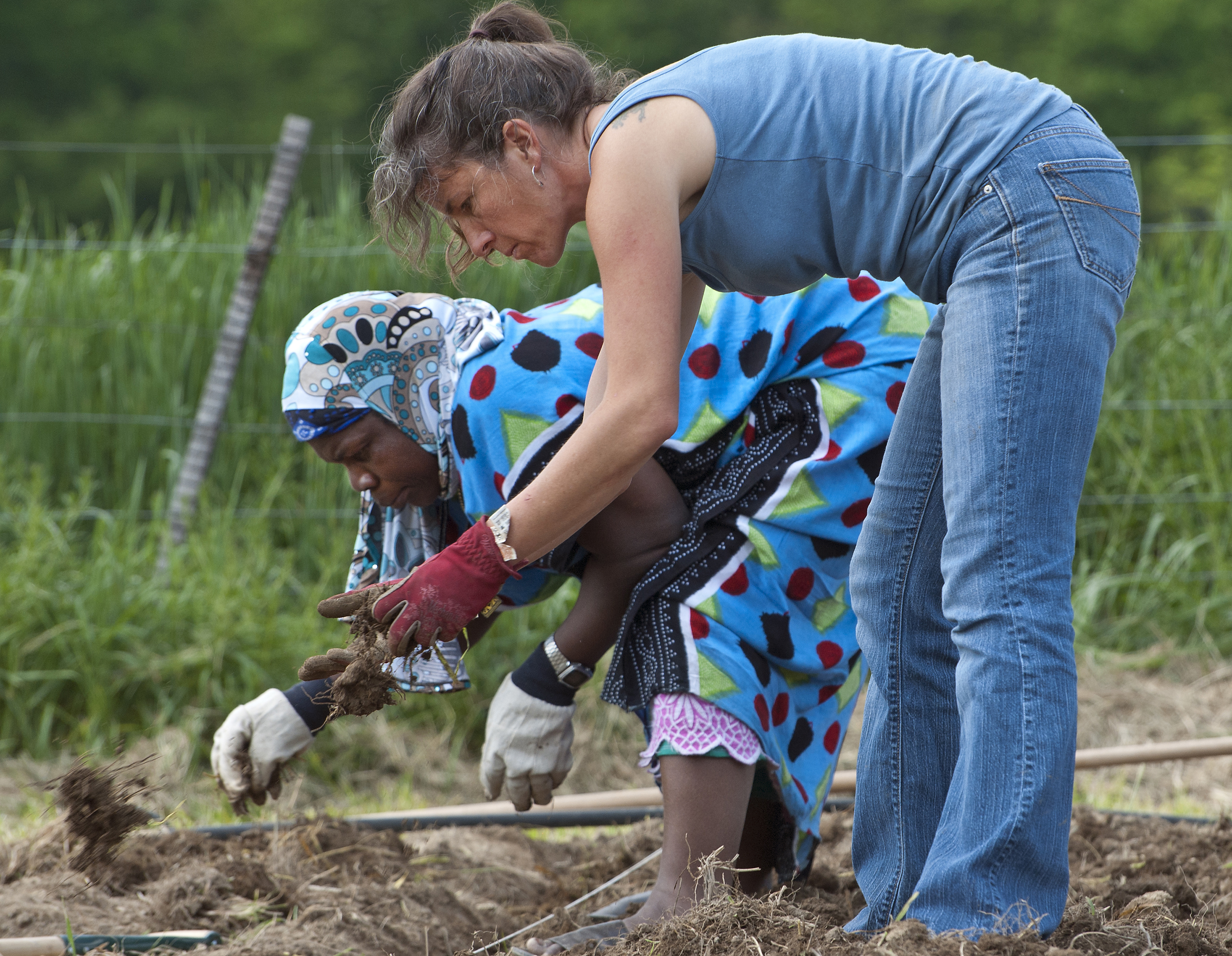Growers Academy helps put Somali Bantu refugees on solid ground

Roanoke’s Somali Bantu community, less than 150 strong, has a few strikes against it. The majority lack English skills, and few are literate in their native languages. But one thing the Bantu know how to do is farm.
Enter VT EarthWorks with its training program, developed in partnership with Virginia Cooperative Extension, called the Growers Academy. The academy teaches crop-growing techniques and business-plan tactics. Plus it connects growers with markets.
“It’s a dream come true,” says Mahammudi Mganga, one of the farmers who learned through the academy that Virginia farming practices differ vastly from those of Somalia.
Hajiro Wehel, also a Bantu farmer, explains, “We used to farm by our hands, by ourselves. Sometimes if you could afford it you could use machines. All the time back there it was always summer. We didn’t have snow or anything.”
Because the language barrier restricted other job opportunities for the Bantu, the academy’s focus on farming allowed the refugees to consider making money from familiar crops: tomatoes, peppers, sweet potato, and pumpkin.
“I’m ready to be a farmer here,” Wehel says. As a result of the eight-week program, she and the four other Bantu participants grew vegetables on a half-acre plot at the Catawba Sustainability Center. They sold their crops at the Catawba Valley Farmers Market, run by VT EarthWorks, and at Local Roots Café in Roanoke.
They also grew flowers with help from Holly Scoggins, director of the Hahn Horticulture Garden at Virginia Tech, and Sheri Dorn, Roanoke-based extension agent.
The focus on the Bantu came about through collaboration between VT EarthWorks and Virginia Tech’s Coalition for Refugee Resettlement, a program of the Center for Student Engagement and Community Partnerships.
Recently VT EarthWorks and Virginia Cooperative Extension launched the third Growers Academy, and once again it includes refugees, this year from Sudan and Burma. Like the Bantu, these participants grew crops in their native lands and are now hope to start their own agriculture-oriented businesses on American soil.




